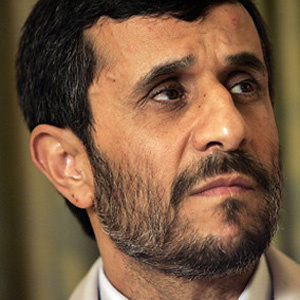Ahmadinejad’s Hyperbole and Iran’s True Situation

In his interview with Channel One, Ahmadinejad stated that his visit to Lebanon “reinforced the process of convergence between regional nations and states…the Lebanese nation is a microcosm of regional nations and with their presence [during his trip] global equations changed.” Of course, Hezbollah was Ahmadinejad’s actual host, and that was a given considering Iran’s overwhelming support for this Shi’a group. That the Lebanon visit was as significant and historic as the Iranian president claimed in his television address is a matter of doubt. Perhaps the only outcome of Ahmadinejad’s visit was clarification of the Iran-Hezbollah bond for the Middle East and the international community.
Considering the current pressures on Hezbollah and its leader Seyyed Hassan Nasrullah, Ahmadinejad’s visit to Lebanon constituted patent support by Iran. This show of congeniality at this point may, however, backfire and aggravate the challenges Hezbollah is facing in the case of Rafik Hariri’s assassination. The Hariri Tribunal will most probably finger Hezbollah—and consequently Iran. It can, meanwhile, force Tehran and Damascus to drift apart: Bashar al-Assad’s regime, which was accused of complicity in Hariri’s assassination, will be pardoned if it improves relations with the rest of the Arab World.
Mahmoud Ahmadinejad has also said that “currently there are two global superpowers: Iran and the U.S., and by 1404 [2025] no country will be comparable to Iran in terms of scientific and industrial growth.” Of course these are invalid propositions unless confirmed by independent authorities. In political science, a superpower is a state which exercises a high level of influence and can manipulate the global order for its own interests. Iran could have had a say in that area in past decades, when population and geographical properties were the key power factors for a country. These elements are less valid in the present world, where sometimes smaller countries are considered powerful, as they can influence international affairs. Japan may be a clear example of this: the third most powerful economy on the planet is regarded as an influential state while it lacks many geographically-empowering factors.
The United States, a superpower as Ahmadinejad admitted, deserves this epithet as it has the dominant say in global developments due to its military capabilities, industrial power, and economic stamina. The economic crisis may have weakened the country, but the U.S. is still the most powerful state in the world. The military, economy and industry are the three basic factors that determine the position of a country in the international community. We still lack these factors.
Iran may be a regional power due to its increasingly-powerful military capability; nevertheless, in economy, it lags behind many other regional states. Ahmadinejad aims to restructure the global management modus operandi, but this is not a realistic expectation. There are several other countries, for instance Germany, India and Brazil, that are more powerful than Iran in the international community, and whose efforts to restructure the UN Security Council has yet to bear results.
In reverse relation to our increasing military power, our popularity at the international level has dropped and during recent years the level of our international relations is witnessing a downward trend. Middle East nations may praise Ahmadinejad for his anti-Israel and anti-U.S. remarks, but in international affairs, it is not the citizens of nations, but the states, that direct diplomatic relations.
Ali Bigdeli is professor of Shahid Beheshti University and foreign affairs analyst.

